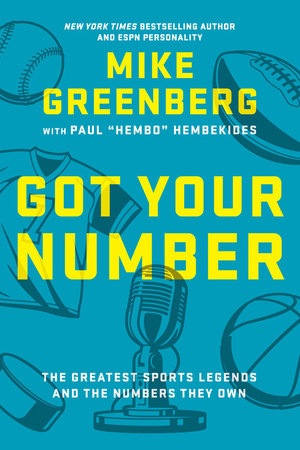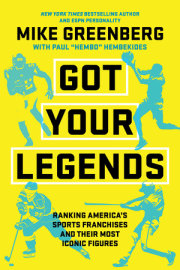#23
If there is one thing for which I have been most often ridiculed during my time at ESPN, it is the frequency with which I mention that I began my career covering Michael Jordan and the Chicago Bulls. In response to this criticism, I simply ask: If you had been fortunate enough to occupy a seat on the
piano bench while Mozart tickled the keys, or if you donned a smock in the studio while Picasso painted a canvas, wouldn’t you talk about it a lot? For the record, I do not consider either of those comparisons to be overreaching. For nearly five years, I had the privilege of a front-row seat to the greatest show in
the history of sports. Any day that I do not mention it requires enormous restraint.
My most lasting recollection of that time, more than any of the titles or Olympics or commercials, was the extraordinary intensity with which Jordan competed every single night. This seems especially noteworthy in this era when healthy players routinely sit out games in the interest of “load management,” their actions openly stating that some games aren’t all that important to them. In Michael Jordan’s final three seasons in Chicago, he did not miss a single game, and he approached a Tuesday night matchup with New Jersey in February with the same tenacity he displayed in the playoffs. This dedication remains my favorite piece of his legacy, and it manifested itself foremostly on the defensive end of the floor. Consider that there have been eleven seasons in NBA history where a player scored 2,000 points and recorded 200 steals, and Michael Jordan is responsible for six of them. He won ten scoring titles (the most ever) and was named first-team all-defense nine times (tied for the most ever). He remains the only player ever to win Defensive Player of the Year and lead the league in scoring in the same season.
Meanwhile, Jordan’s offensive accomplishments are thoroughly mind-blowing. He is the all-time leader in points per game in the regular season and the postseason. He once scored in double figures for a record 1,041 consecutive games, which is 366 games longer than the number two player in history.
He played in thirty-seven playoff series and led both teams in scoring in thirty-six of them. He had five career playoff games with at least 55 points; no other player has more than one. He
averaged 30 points in the playoffs in twelve different seasons; Jerry West is next on that list with seven. Since the advent of the three-point line, Jordan is the only player to average 35 points in a season more than once. More than anything, though, Michael Jordan is known for winning. The game-winning jumper to claim the NCAA title for North Carolina—as a freshman. Two Olympic gold medals.
And, of course, six NBA championships, a perfect six-for-six in the finals, the most wins in the championship round without a loss by an MVP in NBA, NHL, MLB, or NFL history. He was the MVP in all six of those finals, to go along with his five regular season MVPs. But, again, Michael cared about winning every time he set foot on the court, not just when the title was at stake. In November 1990, his team lost three straight games—it would not lose three in a row ever again while he was in Chicago. In
all, Jordan went 631 games between three-game losing streaks. Simply put, Michael Jeffrey Jordan was absolutely everything you could ever wish an athlete to be. He cared about the fans, he was endlessly accommodating to the media, and he cared more about winning than he did anything else, including money. The lessons I learned just being in his orbit have served me well. He was the best player ever, in his or any sport. If there were only space for one athlete in this book, it would be him.
Copyright © 2023 by Mike Greenberg and Paul Hembekides. All rights reserved. No part of this excerpt may be reproduced or reprinted without permission in writing from the publisher.











